
Dental Crowns – Zionsville, IN
Repair Decayed
& Damaged Teeth
At Trinity Dental, we provide our patients with great looking and feeling restorations to give them satisfaction and confidence in their new smile. If you have dental decay or damage, Dr. Angelo M. Julovich is experienced in the use of dental crowns to enhance and strengthen damaged teeth. If you have problems like chronic tooth pain, sensitivity, chips, cracks, or even stubborn discoloration, he can restore your grin with beautiful restorations to completely eliminate these problems. If you’re interested in dental crowns in Zionsville, IN, contact our dental office today to get started!
Why Choose Trinity Dental for Dental Crowns?
- Natural-Looking Dental Crowns
- We Are In-Network with Dental Insurance PPOs
- Restore the Strength of Damaged Teeth
What Are Dental Crowns?

Dental crowns get their name because they literally cover or cap the entire visible portion of your tooth. They are used to strengthen damaged teeth, but they’re also used to completely replace missing teeth when they’re paired with dental implants. They can be made from a variety of materials like silver, gold, and ceramics. They can also be used to improve the appearance of teeth, conceal discoloration, and correct misshapen teeth.
Why Do You Need a Dental Crown?

You may need a dental crown if you have any serious decay or damage in your natural dental structure. One of the most common situations where we use dental crowns is when injury has occurred. Whether it’s sports or a simple fall, cracked or broken teeth can be preserved and strengthened with dental crowns.
Additionally, decay can break down your enamel, exposing the sensitive dental pulp inside of your tooth. Dental crowns can be used to protect this decayed tooth from pain and sensitivity as a result of exposed pulp.
The Process for Dental Crowns

Receiving your dental crown will typically take 2 visits. During the first, Dr. Julovich will carefully examine your smile and then remove a slight portion of the structure of your tooth to accommodate your crown. Then, he will take images and impressions of your smile to create a custom-made crown that seamlessly blends into your natural teeth. We will give you a temporary one to wear until the permanent crowns are fabricated. After a few weeks, you’ll come back into our dental office, where Dr. Julovich will place your personalized dental crown to restore the beauty and function back to your smile.
How to Take Care of Your Dental Crowns
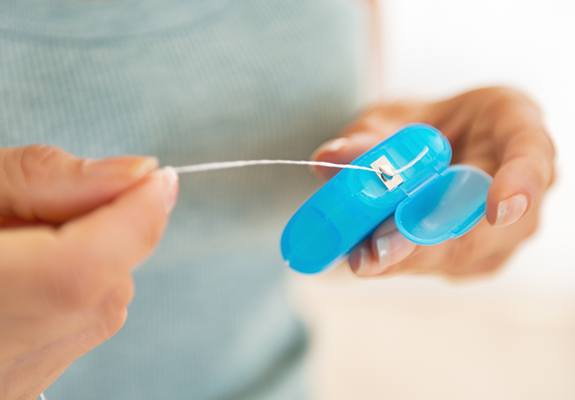
Maintaining your dental crown is really simple because it doesn’t differ much from caring for your natural teeth. Brush your teeth twice a day and floss once a day to remove plaque and bacteria buildup. You should also visit our dental office for routine checkups and cleanings to ensure the condition of your crown and oral health. You may also want to avoid chewing extra-hard pieces of food or nonfood items that could damage or crack your crown. That means no chewing on ice or using your teeth to open packages.
Understanding the Cost of Dental Crowns
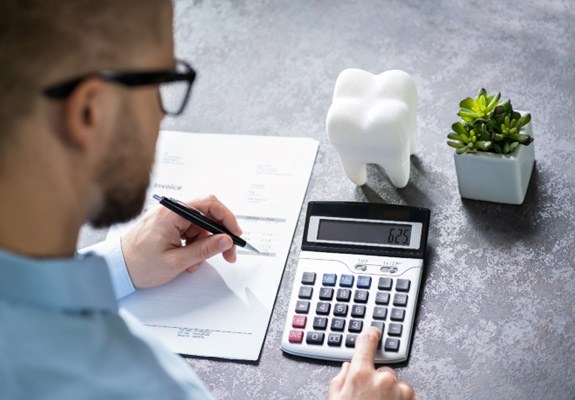
The cost of dental crowns can vary from case to case. When you visit us for your consultation, our team will be able to perform a thorough examination and provide you with a personalized price estimate. We will also be happy to help you understand your payment options, such as insurance and financing. We even have a convenient in-house discount plan!
Factors that Affect the Cost of Dental Crowns
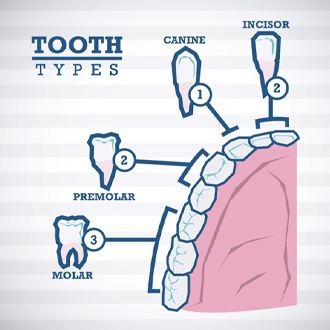
Some factors that can influence the cost of dental crowns include:
- Preparatory treatment. Some patients require root canal therapy or other procedures before they can receive a crown. Naturally, such services add to the total cost of care.
- Dr. Julovich provides crowns made of gold, silver, and ceramic. Each of these materials has its own pros and cons, as well as its own cost. Our team can help you compare your options and choose the one that best fits your circumstances.
- The process of making the crown. We work closely with trustworthy dental laboratories to provide top-quality crowns. Lab fees must be factored into the prices we charge.
Keep in mind that if you ever come across a deal for “cheap” dental crowns, extreme caution is in order. You tend to get what you pay for! It is best to invest in reliable care from a reputable dental team.
Does Dental Insurance Cover Dental Crowns?
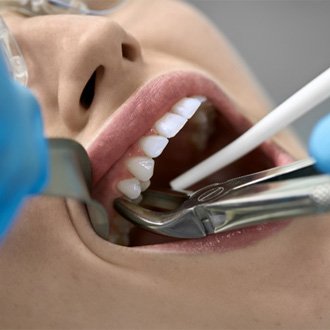
Very often, yes, dental insurance does cover dental crowns. Usually, crowns are classified as a major service, so around 50% of their cost may be covered, up to the amount of your plan’s annual maximum. You might be able to save hundreds of dollars out of pocket! Our team welcomes insurance, and we are in-network with some popular PPO plans. We will do our best to help you understand how your benefits work and use them to your greatest advantage.
Other Options for Making Dental Crowns Affordable
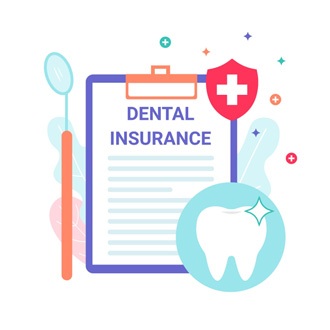
Outside of insurance, there are other provisions that might make it easier for you to afford your dental crown:
- We work with CareCredit, a third-party lender, to provide low-interest and no-interest payment plans to patients. The application process is fast, and most patients are deemed eligible for credit.
- J’s Smile Club. This in-house discount plan is designed for patients without insurance. It covers all basic preventive care and provides a 15% discount on additional services, including crowns.
Would you like to learn more about dental crowns and their cost? Get in touch with our team today; we will be happy to answer your questions!
Dental Crowns FAQs
Are Dental Crowns Permanent?
It’s important to remember that even the most well-made dental crown isn’t permanent. Eventually, it may become damaged or worn down to the point where it needs to be replaced. That said, as long as you take proper care of your dental crown by practicing good oral hygiene and avoiding smile-damaging habits, you can typically expect your restoration to last for a long time – often in the range of 5 to 15 years.
Remember, even though the crown itself won’t last forever, the process of placing it can’t be reversed. Once enamel has been taken off a tooth to make room for a dental crown, it will not grow back. As such, once your current crown reaches the end of its lifespan, you will need to get a new one as soon as possible in order to make sure your tooth stays protected.
How Do You Know When a Dental Crown Needs to Be Replaced?
Since the lifespan of a dental crown can vary, you will need to keep an eye out for signs that can indicate that a replacement is necessary. Here are some examples:
- Your crown may start to feel loose, which may happen if you use it to chew particularly sticky foods.
- Your crown may be notably damaged or worn down.
- If your crown is made out of ceramics, it may become noticeably discolored and start drawing the wrong kind of attention to your smile.
- There could be pain under your crown that indicates that something has gone wrong with the tooth.
You’ll need to see a dentist in order to confirm whether your crown truly needs to be replaced. Please call us right away if you have any concerns regarding your dental crown.
Do Dental Crowns Get Cavities?
No, dental crowns cannot develop cavities the way your natural teeth can. However, some people assume that teeth that have been restored with crowns are completely protected from decay. In reality, a crowned tooth can still get a cavity, so you can’t afford to be lax when it comes to your oral hygiene. When brushing your teeth, remember to pay close attention to the area where the crown meets the gums. Keeping this area clean is important due to the risk of harmful bacteria slipping under the crown and attacking the tooth.
Is It a Dental Emergency If Your Crown Falls Off?
Losing a dental crown can definitely be alarming, but it’s not such an urgent problem that it necessarily requires a same-day appointment. Nevertheless, you will definitely want to see your dentist as soon as you can; the longer the tooth stays exposed, the longer it will be susceptible to decay and damage.
While you’re waiting to see your dentist after losing a dental crown, remember not to chew with the exposed tooth so that you don’t damage it further. Also, if you still have the crown, you should bring it with you to your dental appointment in case there’s a chance of saving it.